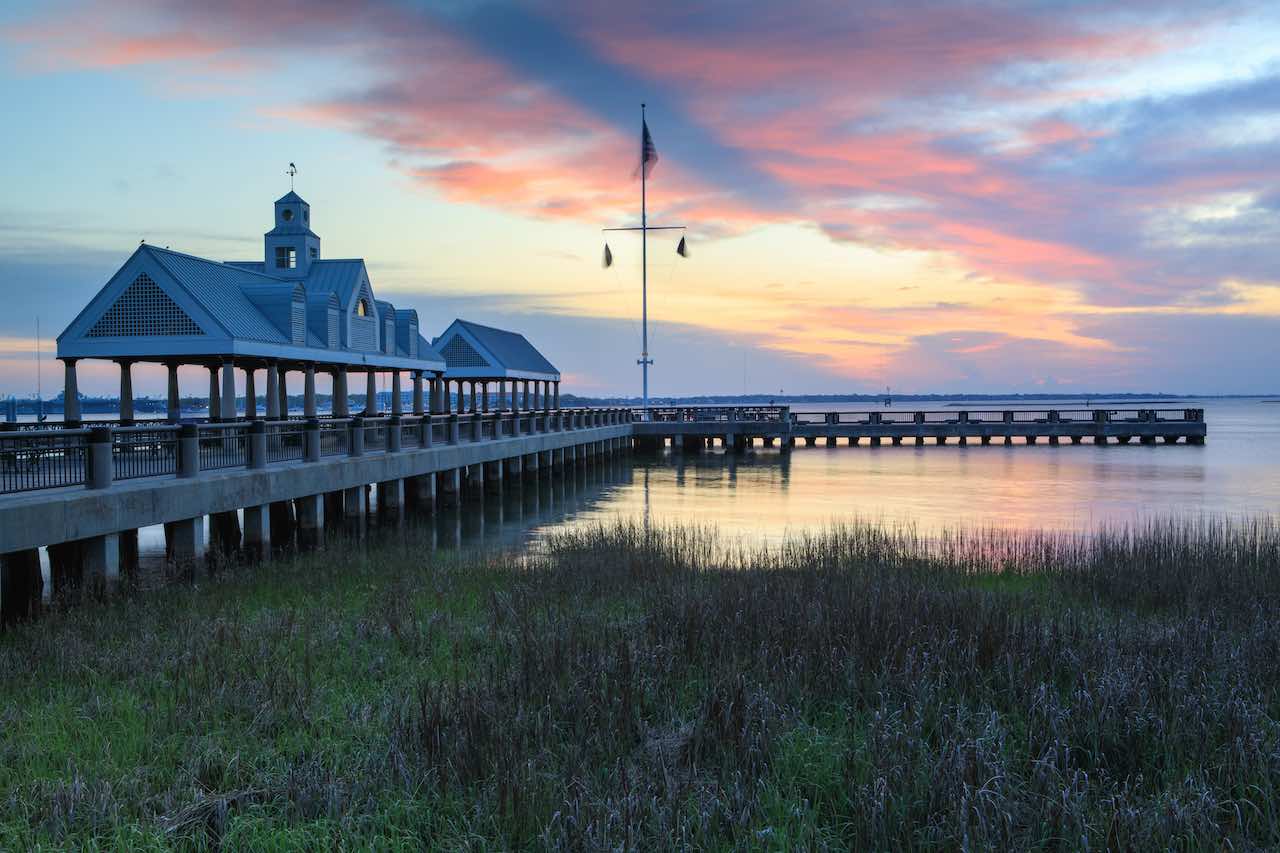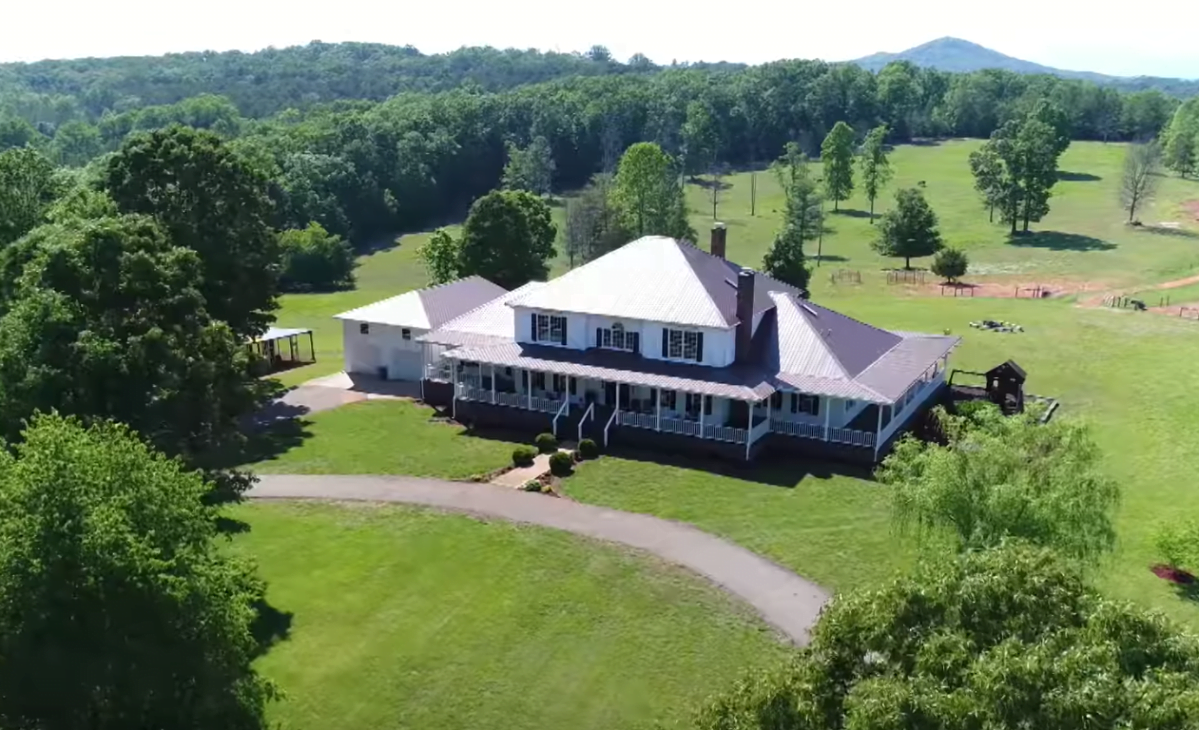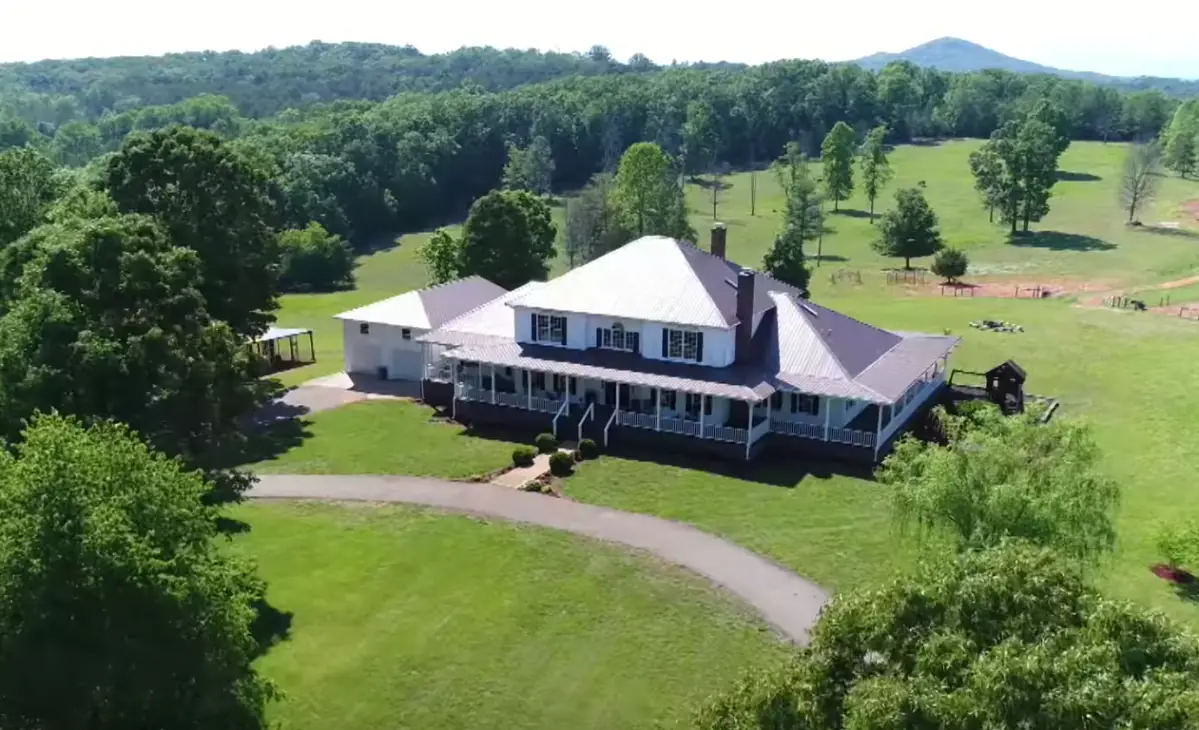If you’re looking for a place to disconnect from the hustle and bustle of city life, South Carolina might just be the answer. Located on the east coast of the US, this state offers a low cost of living and abundant natural resources, making it an attractive option for those wanting to live off the grid. With opportunities for growing crops, harvesting rainwater, and access to diverse wildlife for fishing, there’s no shortage of ways to sustain yourself in this southern state. However, it’s important to note that South Carolina does have its challenges, including issues with road infrastructure and the education system, as well as the potential for natural disasters. Overall, though, with its lower property prices, low property tax rates, and favorable climate, South Carolina provides a promising environment for off-grid living.
Benefits of Living Off the Grid in South Carolina

Low Cost of Living
Living off the grid in South Carolina comes with several benefits, and one of the most significant is the low cost of living. Compared to the national average, the cost of living in South Carolina is relatively low. This means that your daily expenses, including groceries, utilities, and healthcare, will be more affordable, allowing you to stretch your budget further.
Abundant Natural Resources
Another advantage of living off the grid in South Carolina is the access to abundant natural resources. The state is known for its diverse wildlife, fertile land, and vast forests. These resources provide opportunities for self-sustainability, such as hunting, foraging, and gardening. By relying on these natural resources, you can reduce your dependence on conventional sources of food and energy.
Legal Off-Grid Living
Living off the grid in South Carolina is legal, making it an attractive option for individuals seeking a self-sufficient lifestyle. While it is important to research and comply with local regulations, the state generally allows for off-grid living. This means that you can build your own sustainable home, generate your own energy, and take advantage of the resources available to you without legal constraints.
Opportunities for Self-Sustainability
Living off the grid in South Carolina also provides opportunities for self-sustainability. The state offers suitable conditions for cultivating crops such as oats, hay, wheat, cotton, corn, and peaches. With a little effort and knowledge, you can grow your own food and reduce your reliance on grocery stores. Additionally, South Carolina receives ample rainfall, allowing for rainwater harvesting, which can provide a reliable and sustainable source of water for your off-grid lifestyle.
Cost of Living and Property Taxes
Low Cost of Living Compared to National Average
One of the key benefits of living off the grid in South Carolina is the low cost of living compared to the national average. Whether it’s groceries, utilities, transportation, or healthcare, you can expect to spend less on your day-to-day expenses in South Carolina. This means that your overall cost of living will be significantly lower, allowing you to allocate your resources to other areas of your off-grid lifestyle.
Cheaper Housing Options
Housing costs can be a significant expense, but in South Carolina, you have access to cheaper housing options. Whether you decide to build your own sustainable home or purchase an existing property, you can find affordable options that suit your off-grid living needs. This affordability gives you the opportunity to invest more into the sustainability aspects of your home, such as renewable energy systems or water collection infrastructure.
Low Property Tax Rates
In addition to the low cost of living, South Carolina offers low property tax rates. This means that you won’t be burdened with high property taxes, allowing you to allocate more of your resources toward your off-grid lifestyle. With lower property tax rates, you can afford to invest in your property and make the necessary modifications to make it more self-sufficient and sustainable.
Climate and Weather
Humid Subtropical Climate
South Carolina has a humid subtropical climate, which means that it experiences hot and humid summers, as well as mild winters. This type of climate can be advantageous for off-grid living as you won’t have to worry about extreme temperatures or unpredictable weather conditions that can be challenging to manage. The consistent climate allows for better planning and utilization of your resources.
Hot and Humid Summers
The summers in South Carolina can be hot and humid, which can impact your off-grid lifestyle. However, with careful planning and design, you can mitigate the effects of the heat and humidity on your living arrangements. Proper insulation, shade structures, and strategic positioning of your off-grid systems can help keep your home comfortable during the summer months.
Mild Winters
On the other hand, South Carolina experiences mild winters, which can be advantageous for off-grid living. You won’t have to worry about extreme cold temperatures that can be challenging to manage without relying on conventional heating systems. Instead, you can explore alternative heating methods, such as passive solar design, wood-burning stoves, or geothermal systems, to keep your home warm and comfortable during the winter months.
Agricultural Opportunities
Suitable Crops for South Carolina
South Carolina offers a favorable environment for cultivating various crops. Some of the crops that thrive in the state include oats, hay, wheat, cotton, corn, and peaches. By taking advantage of the suitable climate and fertile land, you can grow your own food and reduce your reliance on grocery stores. This not only promotes self-sustainability but also ensures that you have access to fresh and healthy produce.
Opportunities for Crop Cultivation
Living off the grid in South Carolina provides numerous opportunities for crop cultivation. Whether you have a small garden or a larger plot of land, you can make use of the available resources and grow your own food. With proper planning and knowledge of local agricultural practices, you can maximize your crop yield and diversity, ensuring a steady supply of fresh produce for your off-grid lifestyle.

Rainwater Harvesting
In addition to crop cultivation, South Carolina’s ample rainfall offers opportunities for rainwater harvesting. Rainwater harvesting involves collecting and storing rainwater for various uses, such as irrigation, household cleaning, and even drinking water. By implementing rainwater harvesting systems, you can reduce your reliance on municipal water sources and conserve valuable resources.
Access to Freshwater Resources
Ample Rainfall
South Carolina receives ample rainfall throughout the year, providing access to freshwater resources for off-grid living. This rainfall can be collected and stored for various uses, ensuring a reliable and sustainable supply of water. Whether you need water for irrigation, household use, or even drinking, the abundance of rainfall in South Carolina makes it an ideal location for off-grid living.
Clean Groundwater
In addition to rainfall, South Carolina also has clean groundwater resources. This means that you can drill a well and access a reliable source of freshwater for your off-grid lifestyle. Clean groundwater is essential for drinking, cooking, and other household uses, and South Carolina’s water quality ensures that you can maintain a high standard of living while living off the grid.
Opportunities for Fishing
South Carolina’s diverse geography includes access to rivers, lakes, and coastal areas, offering opportunities for fishing. Fishing can be both a recreational activity and a food source for your off-grid lifestyle. Whether you enjoy freshwater or saltwater fishing, South Carolina’s abundant fish populations ensure that you have access to this sustainable food source.
Property Prices and Affordability

Cheaper Property Prices Compared to National Average
Property prices in South Carolina are generally cheaper compared to the national average. This means that you can find affordable properties that suit your off-grid living needs, whether you’re looking to purchase existing property or build your own sustainable home. The affordability of property prices allows you to allocate more of your resources to making your property self-sufficient and sustainable.
Coastal Areas and Their Higher Prices
While property prices in South Carolina are generally cheaper, it is important to note that coastal areas tend to have higher prices. The demand for coastal properties and the proximity to beaches and tourist attractions can drive up the cost. However, even in coastal areas, you can still find more affordable options compared to other coastal regions in the country.
Property Tax in South Carolina
Another advantage of living off the grid in South Carolina is the low property tax rates. The state has some of the lowest property tax rates in the country, which means that you won’t be burdened with high property taxes. This allows you to allocate more of your resources toward your off-grid lifestyle and investments in sustainability.
Cost of Living in South Carolina
Lower Than National Average
The cost of living in South Carolina is lower than the national average, making it an attractive location for off-grid living. Whether it’s groceries, utilities, transportation, or healthcare, you can expect to spend less on your day-to-day expenses in South Carolina. This lower cost of living allows you to allocate more of your resources toward your off-grid lifestyle and investments in self-sustainability.
Affordable Housing Options
In addition to the lower cost of living, South Carolina offers affordable housing options. Whether you’re looking to build your own sustainable home or purchase an existing property, you can find affordable options that suit your off-grid living needs. This affordability allows you to invest more into the sustainability aspects of your home, such as renewable energy systems or water collection infrastructure.
Transportation Costs
Transportation costs in South Carolina are also lower compared to the national average. Whether you’re commuting to work, running errands, or exploring the state, you can expect to spend less on fuel, public transportation, and vehicle maintenance. This lower transportation cost further contributes to the overall lower cost of living in South Carolina, enabling you to allocate resources to other aspects of your off-grid lifestyle.
Employment and Crime Rates
Low Unemployment Rate
South Carolina boasts a relatively low unemployment rate, offering opportunities for employment if you choose to work while living off the grid. The state’s growing economy and diverse industries provide job prospects across various sectors. However, it’s important to note that the minimum wage in South Carolina is generally low, so careful financial planning is necessary to support your off-grid lifestyle.
Low Minimum Wage
Despite the low unemployment rate, South Carolina has a low minimum wage compared to other states. This means that if you choose to work while living off the grid, you may need to carefully budget your income to support your needs. However, the lower cost of living in South Carolina can offset the impact of the low minimum wage, allowing you to make the most of your resources.
Higher Crime Rate Compared to National Average
South Carolina does have a higher crime rate compared to the national average. While there are areas that are safer than others, it’s important to consider the crime statistics when choosing your off-grid location. Implementing security measures and being vigilant can help mitigate the risk, but it’s essential to research and assess the crime rates of different areas in South Carolina before making a decision.
Challenges and Considerations
Issues with Road Infrastructure
One challenge of living off the grid in South Carolina is the issues with road infrastructure. Some rural areas may have limited road access or poorly maintained roads, which can impact transportation and access to essential services. It’s important to consider this when choosing your off-grid location and factor in any additional costs or considerations related to road infrastructure.
Challenges in the Education System
Another consideration for off-grid living in South Carolina is the challenges in the education system. While the state offers public and private schools, the quality of education can vary. In some rural areas, access to quality schools and educational resources may be limited. Families considering off-grid living should research and identify alternative education options, such as homeschooling or online education, to ensure their children receive a quality education.
Natural Disasters
South Carolina is prone to natural disasters, including hurricanes, floods, and heatwaves. It’s important to consider these potential risks when planning your off-grid lifestyle. Implementing appropriate building codes, disaster preparedness measures, and having a solid emergency plan in place are essential for ensuring your safety and well-being during these events.
Conclusion
Living off the grid in South Carolina offers numerous benefits and opportunities for self-sustainability. The low cost of living, access to abundant natural resources, and legal off-grid living make it an attractive location for those seeking a self-sufficient lifestyle. With a favorable climate, diverse geography, and agricultural opportunities, South Carolina provides the necessary conditions for off-grid living.
While there are challenges and considerations to keep in mind, such as road infrastructure, education system limitations, and natural disasters, proper planning and preparation can help overcome these obstacles. By harnessing the natural resources available, including ample rainfall and clean groundwater, you can create a sustainable and self-sufficient lifestyle that aligns with your values and goals.
Overall, South Carolina offers access to natural resources, a favorable climate, and diverse geography, making it an ideal location for off-grid living. With its lower cost of living, affordable housing options, and opportunities for self-sustainability, living off the grid in South Carolina can provide a fulfilling and rewarding lifestyle.




